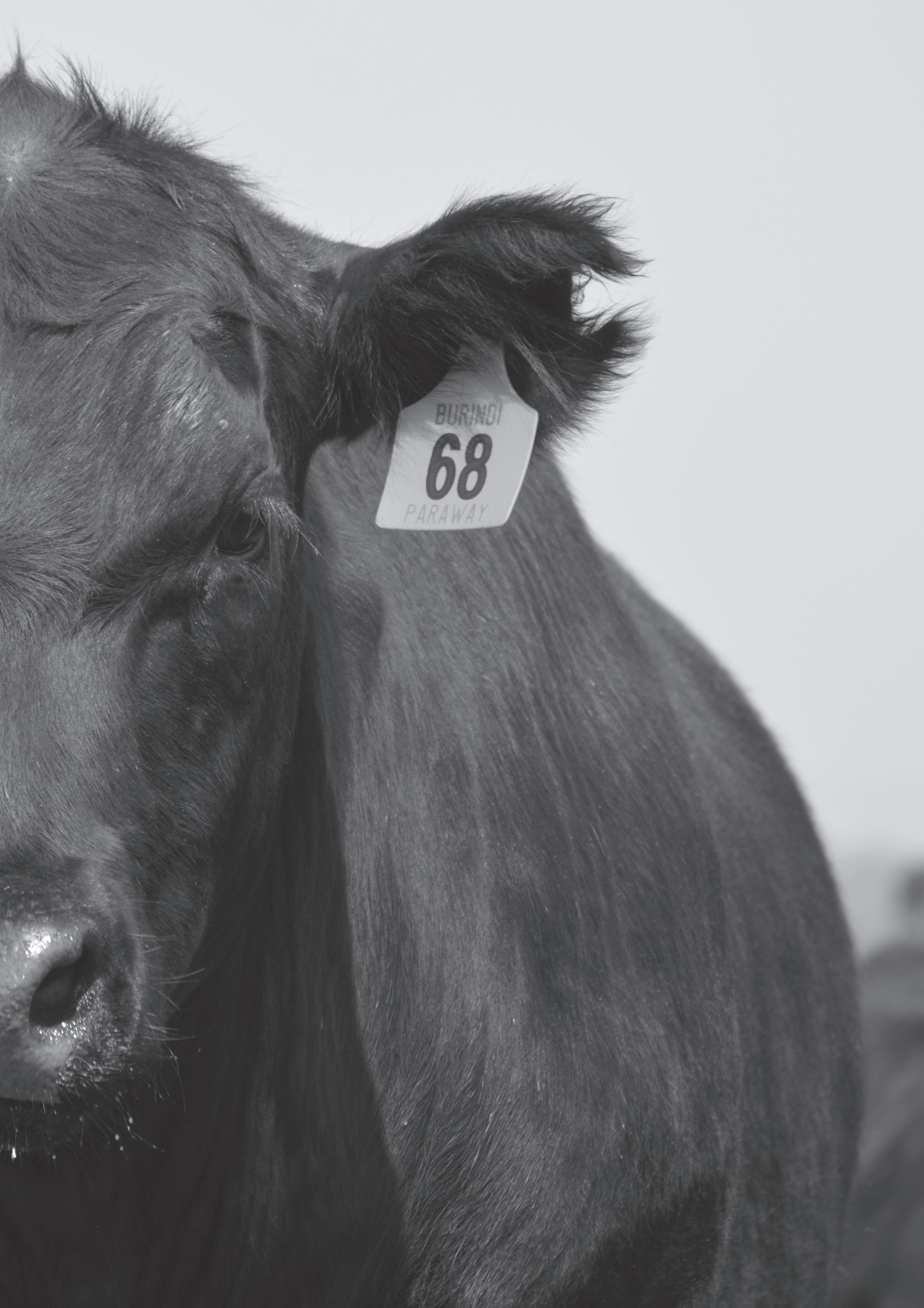
3 minute read
recessive genetic conditions
This is information for bull buyers about the recessive genetic conditions, Arthrogryposis Multiplex (AM), Hydrocephalus (NH), Contractural Arachnodactyly (CA) and Developmental Duplications (DD).
Putting undesirable Genetic Recessive Conditions in perspective
All animals, including humans, carry single copies (alleles) of undesirable or “broken” genes. In single copy form, these undesirable alleles usually cause no harm to the individual.
But when animals carry 2 copies of certain undesirable or “broken” alleles it often results in bad consequences. Advances in genomics have facilitated the development of accurate diagnostic tests to enable the identification and management of numerous undesirable or “broken” genes.
Angus Australia is proactive in providing its members and their clients with relevant tools and information to assist them in the management of known undesirable genes and our members are leading the industry in their use of this technology.
What are AM, NH, CA and DD?
AM, NH, CA and DD are all recessive conditions caused by “broken” alleles within the DNA of individual animals. When a calf inherits 2 copies of the AM or NH alleles their development is so adversely affected that they will be still-born.
In other cases, such as CA and DD, calves carrying 2 copies of the broken allele may reach full-term. In such cases the animal may either appear relatively normal, or show physical symptoms that affect their health and/or performance.
How are the conditions inherited?
Research in the U.S. and Australia indicates that AM, NH, CA and DD are simply inherited recessive conditions. This means that a single gene (or pair of alleles) controls the condition.
For this mode of inheritance two copies of the undesirable allele need to be present before the condition is seen; in which case you may get an abnormal calf. A more common example of a trait with a simple recessive pattern of inheritance is black and red coat colour.
Animals with only one copy of the undesirable allele (and one copy of the normal form of the allele) appear normal and are known as “carriers”.
What happens when carriers are mated to other animals?
Carriers, will on average, pass the undesirable allele to a random half (50 %) of their progeny.
When a carrier bull and carrier cow is mated, there is a 25% chance that the resultant calf will inherit two normal alleles, a 50% chance that the mating will result in a carrier (i.e. with just 1 copy of the undesirable allele, and a 25% chance that the calf will inherit two copies of the undesirable gene.
If animals tested free of the undesirable gene are mated to carrier animals the condition will not be expressed at all. All calves will appear normal, but approximately half (50%) could be expected to be carriers.
How is the genetic status of animals reported?
DNA-based diagnostic tests have been developed which can be used to determine whether an individual animal is either a carrier or free of the alleles resulting in AM, NH, CA or DD.
Angus Australia uses advanced software to calculate the probability of (untested) animals to being carriers of AM, NH, CA or DD. The software uses the test results of any relatives in the calculations and the probabilities may change as new results for additional animals become available.
The genetic status of animals is being reported using five categories:
AMF Tested AM free
AMFU
Based on Pedigree AM free - Animal has not been tested
AM_% _% probability the animal is an AM carrier
AMC Tested AM-Carrier
AMA AM-Affected
For NH, CA and DD, simply replace AM in the above table with NH, CA or DD.
Registration certificates and the Angus Australia web-database display these codes. This information is displayed on the animal details page and can be accessed by conducting an “Database Search” from the Angus Australia website or looking up individual animals listed in a sale catalogue.
Implications for Commercial Producers
Your decision on the importance of the genetic condition status of replacement bulls should depend on the genetics of your cow herd (which bulls you previously used) and whether some female progeny will be retained or sold as breeders.
Most Angus breeders are proactive and transparent in managing known genetic conditions, endeavouring to provide the best information available. The greatest risk to the commercial sector from undesirable genetic recessive conditions comes from unregistered bulls with unknown genetic background. The genetic condition testing that Angus Australia seedstock producers are investing in provides buyers of registered Angus bulls with unmatched quality assurance.
For further information contact Angus Australia’s Breed Development & Extension Manager on (02) 6773 4618.




